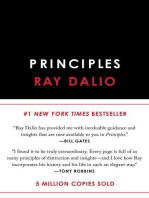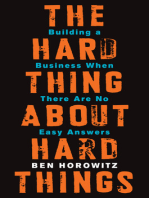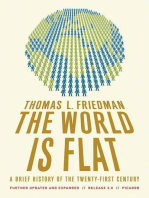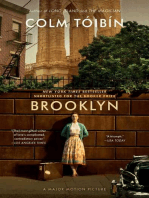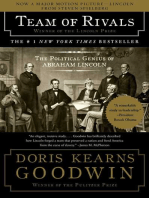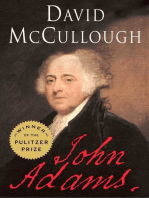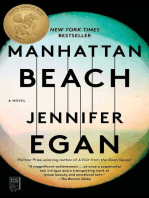0 ratings0% found this document useful (0 votes)
403 viewsLong Shot Rules
Long Shot Rules
Uploaded by
xqvnlong shot rules
Copyright:
© All Rights Reserved
Available Formats
Download as PDF or read online from Scribd
Long Shot Rules
Long Shot Rules
Uploaded by
xqvn0 ratings0% found this document useful (0 votes)
403 views5 pageslong shot rules
Copyright
© © All Rights Reserved
Available Formats
PDF or read online from Scribd
Share this document
Did you find this document useful?
Is this content inappropriate?
long shot rules
Copyright:
© All Rights Reserved
Available Formats
Download as PDF or read online from Scribd
Download as pdf
0 ratings0% found this document useful (0 votes)
403 views5 pagesLong Shot Rules
Long Shot Rules
Uploaded by
xqvnlong shot rules
Copyright:
© All Rights Reserved
Available Formats
Download as PDF or read online from Scribd
Download as pdf
You are on page 1of 5
Long Shot is an exciting horse racing game in which players buy, bet,
and manipulate horses throughout a race around the track
The object of Long Shot is to have more money than any other player
at the end of the race.
3-8 PLAYERS @ AGE 10+ ¢ 45-GO MINUTES
EQUIPMENT
10 Horse cards 70 betting chips
et
104 “Long Shot" cards 8 “Reroll” tokens
= = Was
ae e
10 plastic horses Paper money 2 dice
in 3 colors 1 green “Move” d6 die
I “Horse” a0 die
LONG SHOT CARDS
Winner's Circle ‘Card type (money)
icon
You cannot Move cards
play this card if
any horse has
finished the race
Horse-specific
Steal cards cards
HORSE CARDS
Horse price
Horse features
Betting chip
Odds
Movement bar
GAME BOARD
Draw and dis-
card zone for
the Long Shot
cards
“No bets” area: ;
‘unless specified, payers
anno bet on as Individual
Caaies tracks
Winner's Circle:
place horses that
finish the race here
SETUP
Choose a player to be the banker/bet keeper.
The banker/bet keeper plays and bets Just as the other players do, except he
also handles all bank and betting transactions... so choose an honest player!
Place all horse pieces behind the start line and stack the betting chips and
money near the side of the board.
Place all Horse cards face up ina line next to the board.
=G@:
Each player begins the game with $25 (three $5 bills, one $10 bill), three
randomly dealt “Long Shot” cards, and one brown “Reroll” token. Place the rest of
the “Long Shot” cards face down in the corner of the game board to be used as a
draw pile. Discarded cards will be played there as well.
Fach player rolls the horse die (10-sided die) to see who takes the first turn.
(highest roll goes first). After determining the first player, the other players will
take turns in clockwise order.
TURN SEQUENCE
1. Take all actions, which apply, according to the “Horse features”
on the horses a player owns.
2. Roll both dice and move the corresponding horse.
3. Take an action (1 of 4 as shown below).
4. Draw a card.
5. Pass the dice to the next player (clockwise).
A player may do 1 (and only 1 per turn) of the following 4 actions:
Play 1 “Long Shot" card, and take the action written on the card.
Buy an unowned horse from the bank for the amount shown
at the top right corner of the horse card.
# Place a $5 bet on any horse that is NOT in the “No bets” area.
Players may ONLY bet $5 per turn.
# Discard 2 cards (do not perform text action) for $5 from the bank. Only 2 cards
may be discarded in this way per turn.
TURN SEQUENCE DEFINED
1. Horse Features
A player begins his turn by taking advantage of all horse features that may
apply on the horses HE OWNS.
2. Dice Roll
The player then advances the horse that is shown on the horse die, the number
of spaces shown on the move die. A horse rolled on the horse die advances,
regardless of who owns it. If a horse rolled on the horse die during this part of the
turn has finished the race, the die must be rerolled until a horse that hasn’t finished
is rolled.
Example: Michelle rolls a “7" on the horse die and a “3" on the move die.
She then advances horse #7 three spaces on the track, regardless of whether
she owns that horse or not.
In addition, the player whose turn it is may also move ALL HORSES HE OWNS
that have the horse number just rolled in each of his horse's “Movement bar,” the
number of spaces shown on the move die. The “Movement bar” is located at the
bottom of each of the horse cards. Players may advance horses they own in this way
ON THEIR TURN ONLY.
Example: Gary rolls a “6" on the horse die and a “1” on the move die. He
advances horse #6 (Six Gun) one space on the racetrack. He owns “Last Chance
(2)" and “Sure Lee (5)." “Sure Lee" has a “6" in its Movement bar. Gary may
also advance “Sure Lee" one space (the number shown on the move die).
Players may advance more than one horse they own in this way, provided
each horse has the number just rolled in its movement bar.
If a “0” is rolled on the move die (during a player's initial die roll only), the
horse rolled on the horse die does not advance. Instead, the player who just
rolled the dice may steal a card at random from the owner of the horse just
rolled on the horse die if they have at least 1 card.
If the horse just rolled on the horse die is unowned (owned by the bank), the
player whose turn it is may draw a card from the draw pile. No horses advance
when a “0” is rolled on the move die. Horses containing the number in the
Movement Bar just rolled on the horse die, also do not get to advance as a result
of the “0” being rolled.
3. Take an action
a) Play a “Long Shot” card
“Long Shot” cards are played to perform the effect listed in their text. Any cards
which allow bets to be made on horses, regardless of where they are on the race
track, may still be played, provided the horse in question has NOT FINISHED the
race.
b) Buy an unowned Horse
When buying an unowned horse from the bank, you must pay the full amount
shown on the top right corner of the horse card.
Horse Card prices correspond to the amount of movement numbers contained
in their “movement bar.” The more movement bar numbers, the higher the horse
price.
c) Bet on a Horse
When placing a $5 bet on a horse, place $5 in front of you and place a “horse
chip” on top of the bet that corresponds with the horse you wish to place a bet on.
5
‘The player bets on
horse #10, that he
does not own.
5
You MAY bet on your own horse in the same way. Instead of using a horse chip,
simply place the bet UNDER the horse you own in which you'd like to place a bet.
The player bets on
his horse #5,
You MAY NOT bet more than $5 per turn.
Bets MAY accumulate on horses.
Once a horse is IN the “No bets” area, players may NOT place $5 bets on that
particular horse. Players may still bet on other horses as usual. Additionally, if a
horse is in the “No bets” area but is later forced back outside of it, players may
place additional bets on it
4, Draw a card
If all of the cards in the draw pile have been drawn before the game ends,
players skip the draw phase of their turn, and no more cards may be drawn.
A player may choose to pass on their turn, and choose no action.
5
You might also like
- The Subtle Art of Not Giving a F*ck: A Counterintuitive Approach to Living a Good LifeFrom EverandThe Subtle Art of Not Giving a F*ck: A Counterintuitive Approach to Living a Good LifeRating: 4 out of 5 stars4/5 (5935)
- The Gifts of Imperfection: Let Go of Who You Think You're Supposed to Be and Embrace Who You AreFrom EverandThe Gifts of Imperfection: Let Go of Who You Think You're Supposed to Be and Embrace Who You AreRating: 4 out of 5 stars4/5 (1106)
- Never Split the Difference: Negotiating As If Your Life Depended On ItFrom EverandNever Split the Difference: Negotiating As If Your Life Depended On ItRating: 4.5 out of 5 stars4.5/5 (879)
- Grit: The Power of Passion and PerseveranceFrom EverandGrit: The Power of Passion and PerseveranceRating: 4 out of 5 stars4/5 (598)
- Hidden Figures: The American Dream and the Untold Story of the Black Women Mathematicians Who Helped Win the Space RaceFrom EverandHidden Figures: The American Dream and the Untold Story of the Black Women Mathematicians Who Helped Win the Space RaceRating: 4 out of 5 stars4/5 (925)
- Shoe Dog: A Memoir by the Creator of NikeFrom EverandShoe Dog: A Memoir by the Creator of NikeRating: 4.5 out of 5 stars4.5/5 (545)
- The Hard Thing About Hard Things: Building a Business When There Are No Easy AnswersFrom EverandThe Hard Thing About Hard Things: Building a Business When There Are No Easy AnswersRating: 4.5 out of 5 stars4.5/5 (353)
- Elon Musk: Tesla, SpaceX, and the Quest for a Fantastic FutureFrom EverandElon Musk: Tesla, SpaceX, and the Quest for a Fantastic FutureRating: 4.5 out of 5 stars4.5/5 (476)
- Her Body and Other Parties: StoriesFrom EverandHer Body and Other Parties: StoriesRating: 4 out of 5 stars4/5 (831)
- The Emperor of All Maladies: A Biography of CancerFrom EverandThe Emperor of All Maladies: A Biography of CancerRating: 4.5 out of 5 stars4.5/5 (274)
- The Little Book of Hygge: Danish Secrets to Happy LivingFrom EverandThe Little Book of Hygge: Danish Secrets to Happy LivingRating: 3.5 out of 5 stars3.5/5 (419)
- The World Is Flat 3.0: A Brief History of the Twenty-first CenturyFrom EverandThe World Is Flat 3.0: A Brief History of the Twenty-first CenturyRating: 3.5 out of 5 stars3.5/5 (2271)
- The Yellow House: A Memoir (2019 National Book Award Winner)From EverandThe Yellow House: A Memoir (2019 National Book Award Winner)Rating: 4 out of 5 stars4/5 (99)
- Devil in the Grove: Thurgood Marshall, the Groveland Boys, and the Dawn of a New AmericaFrom EverandDevil in the Grove: Thurgood Marshall, the Groveland Boys, and the Dawn of a New AmericaRating: 4.5 out of 5 stars4.5/5 (270)
- The Sympathizer: A Novel (Pulitzer Prize for Fiction)From EverandThe Sympathizer: A Novel (Pulitzer Prize for Fiction)Rating: 4.5 out of 5 stars4.5/5 (122)
- Team of Rivals: The Political Genius of Abraham LincolnFrom EverandTeam of Rivals: The Political Genius of Abraham LincolnRating: 4.5 out of 5 stars4.5/5 (235)
- A Heartbreaking Work Of Staggering Genius: A Memoir Based on a True StoryFrom EverandA Heartbreaking Work Of Staggering Genius: A Memoir Based on a True StoryRating: 3.5 out of 5 stars3.5/5 (232)
- On Fire: The (Burning) Case for a Green New DealFrom EverandOn Fire: The (Burning) Case for a Green New DealRating: 4 out of 5 stars4/5 (75)
- The Unwinding: An Inner History of the New AmericaFrom EverandThe Unwinding: An Inner History of the New AmericaRating: 4 out of 5 stars4/5 (45)
- Appendices: Treasure (Miscellaneous Weapons) Appendix A: Random Dungeon GenerationDocument4 pagesAppendices: Treasure (Miscellaneous Weapons) Appendix A: Random Dungeon GenerationxqvnNo ratings yet
- Wilderness Encounters 2d6 Dead City Encounters 2d 6Document1 pageWilderness Encounters 2d6 Dead City Encounters 2d 6xqvnNo ratings yet
- Basic Red RPGDocument6 pagesBasic Red RPGxqvnNo ratings yet
- Original Edition Delta - Book of WarDocument22 pagesOriginal Edition Delta - Book of Warxqvn100% (1)
- Lotfp Dropdie Equipment PDFDocument2 pagesLotfp Dropdie Equipment PDFxqvn100% (1)
- Labyrinth Lord - Rabbits and RangersDocument86 pagesLabyrinth Lord - Rabbits and Rangersxqvn100% (1)


